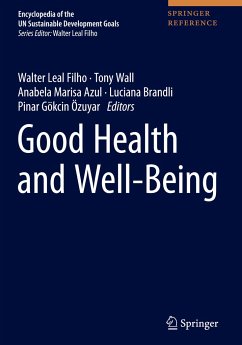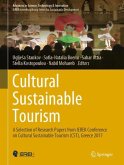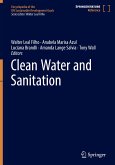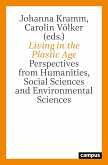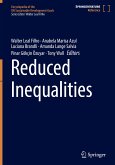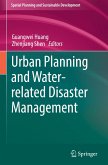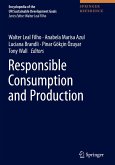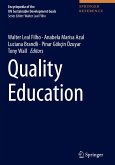The problems related to the process of industrialisation such as biodiversity depletion, climate change and a worsening of health and living conditions, especially but not only in developing countries, intensify. Therefore, there is an increasing need to search for integrated solutions to make development more sustainable. The United Nations has acknowledged the problem and approved the "2030 Agenda for Sustainable Development". On 1st January 2016, the 17 Sustainable Development Goals (SDGs) of the Agenda officially came into force. These goals cover the three dimensions of sustainable development: economic growth, social inclusion and environmental protection.
The Encyclopedia of the UN Sustainable Development Goals comprehensively addresses the SDGs in an integrated way. The Encyclopedia encompasses 17 volumes, each one devoted to one of the 17 SDGs. This volume addresses SDG 3, namely "Ensure healthy lives and promotewell-being for all at all ages" and contains the description of a range of terms, to grow a better understanding and foster knowledge. Ensuring healthy lives and promoting the well-being for all at all ages is essential to sustainable development. Significant strides have been made in increasing life expectancy and reducing some of the common killers associated with child and maternal mortality. Major progress has been made on increasing access to clean water and sanitation, reducing malaria, tuberculosis, polio and the spread of HIV/AIDS. However, many more efforts are needed to fully eradicate a wide range of diseases and address many different persistent and emerging health issues.
Concretely, the defined targets are:
Reduce the global maternal mortality ratio to less than 70 per 100,000 live birthsEnd preventable deaths of newborns and children under 5 years of age, with all countries aiming to reduce neonatal mortality to at least as low as 12 per 1,000 live births and under-5 mortality to at least as low as 25 per1,000 live birthsEnd the epidemics of AIDS, tuberculosis, malaria and neglected tropical diseases and combat hepatitis, water-borne diseases and other communicable diseasesReduce by one third premature mortality from non-communicable diseases through prevention and treatment and promote mental health and wellbeingStrengthen the prevention and treatment of substance abuse, including narcotic drug abuse and harmful use of alcoholHalve the number of global deaths and injuries from road traffic accidentsEnsure universal access to sexual and reproductive health-care services, including for family planning, information and education, and the integration of reproductive health into national strategies and programmesAchieve universal health coverage, including financial risk protection, access to quality essential health-care services and access to safe, effective, quality and affordable essential medicines and vaccines for allSubstantially reduce the number of deaths and illnesses from hazardous chemicals and air, water and soil pollution and contaminationStrengthen the implementation of the World Health Organization Framework Convention on Tobacco Control in all countries, as appropriateSupport the research and development of vaccines and medicines for the communicable and non-communicable diseases that primarily affect developing countries, provide access to affordable essential medicines and vaccines, in accordance with the Doha Declaration on the TRIPS Agreement and Public Health, which affirms the right of developing countries to use to the full the provisions in the Agreement on Trade-Related Aspects of Intellectual Property Rights regarding flexibilities to protect public health, and, in particular, provide access to medicines for allSubstantially increase health financing and the
The Encyclopedia of the UN Sustainable Development Goals comprehensively addresses the SDGs in an integrated way. The Encyclopedia encompasses 17 volumes, each one devoted to one of the 17 SDGs. This volume addresses SDG 3, namely "Ensure healthy lives and promotewell-being for all at all ages" and contains the description of a range of terms, to grow a better understanding and foster knowledge. Ensuring healthy lives and promoting the well-being for all at all ages is essential to sustainable development. Significant strides have been made in increasing life expectancy and reducing some of the common killers associated with child and maternal mortality. Major progress has been made on increasing access to clean water and sanitation, reducing malaria, tuberculosis, polio and the spread of HIV/AIDS. However, many more efforts are needed to fully eradicate a wide range of diseases and address many different persistent and emerging health issues.
Concretely, the defined targets are:
Reduce the global maternal mortality ratio to less than 70 per 100,000 live birthsEnd preventable deaths of newborns and children under 5 years of age, with all countries aiming to reduce neonatal mortality to at least as low as 12 per 1,000 live births and under-5 mortality to at least as low as 25 per1,000 live birthsEnd the epidemics of AIDS, tuberculosis, malaria and neglected tropical diseases and combat hepatitis, water-borne diseases and other communicable diseasesReduce by one third premature mortality from non-communicable diseases through prevention and treatment and promote mental health and wellbeingStrengthen the prevention and treatment of substance abuse, including narcotic drug abuse and harmful use of alcoholHalve the number of global deaths and injuries from road traffic accidentsEnsure universal access to sexual and reproductive health-care services, including for family planning, information and education, and the integration of reproductive health into national strategies and programmesAchieve universal health coverage, including financial risk protection, access to quality essential health-care services and access to safe, effective, quality and affordable essential medicines and vaccines for allSubstantially reduce the number of deaths and illnesses from hazardous chemicals and air, water and soil pollution and contaminationStrengthen the implementation of the World Health Organization Framework Convention on Tobacco Control in all countries, as appropriateSupport the research and development of vaccines and medicines for the communicable and non-communicable diseases that primarily affect developing countries, provide access to affordable essential medicines and vaccines, in accordance with the Doha Declaration on the TRIPS Agreement and Public Health, which affirms the right of developing countries to use to the full the provisions in the Agreement on Trade-Related Aspects of Intellectual Property Rights regarding flexibilities to protect public health, and, in particular, provide access to medicines for allSubstantially increase health financing and the

